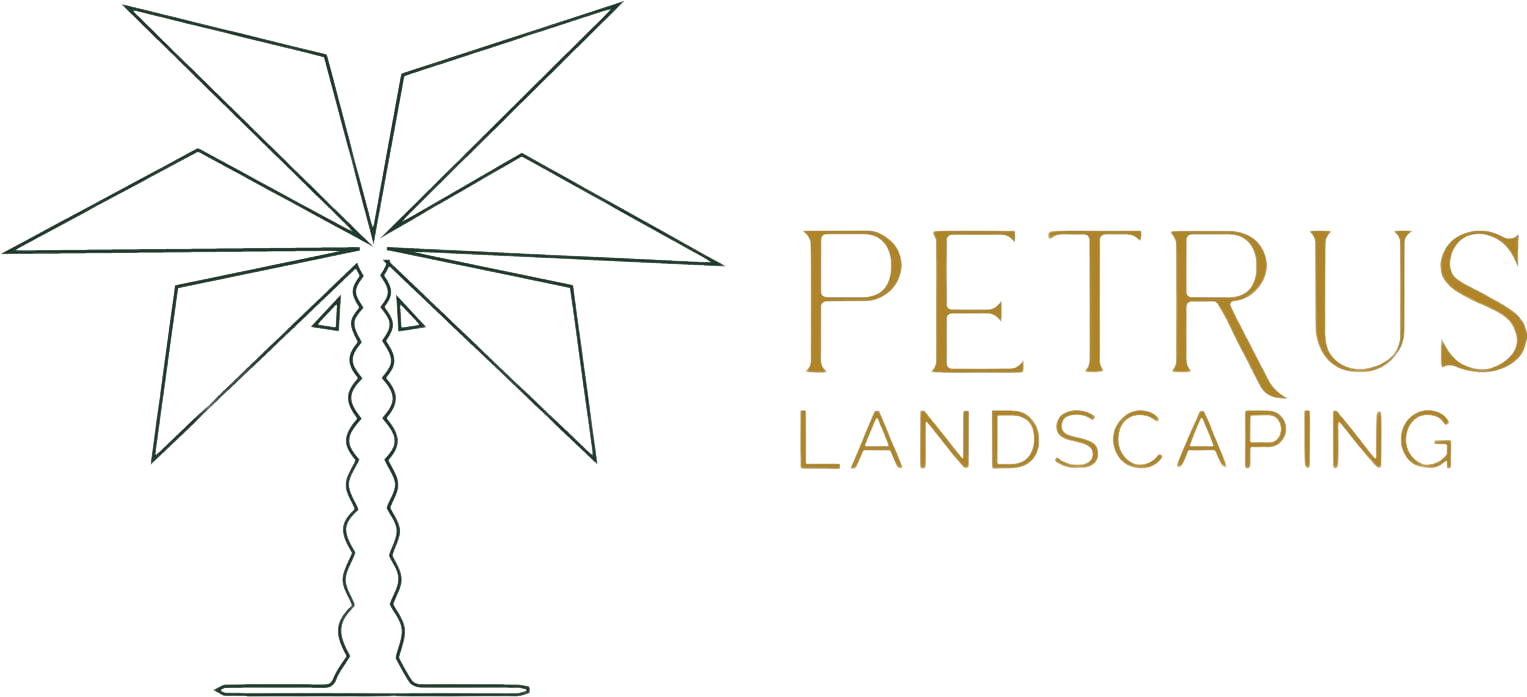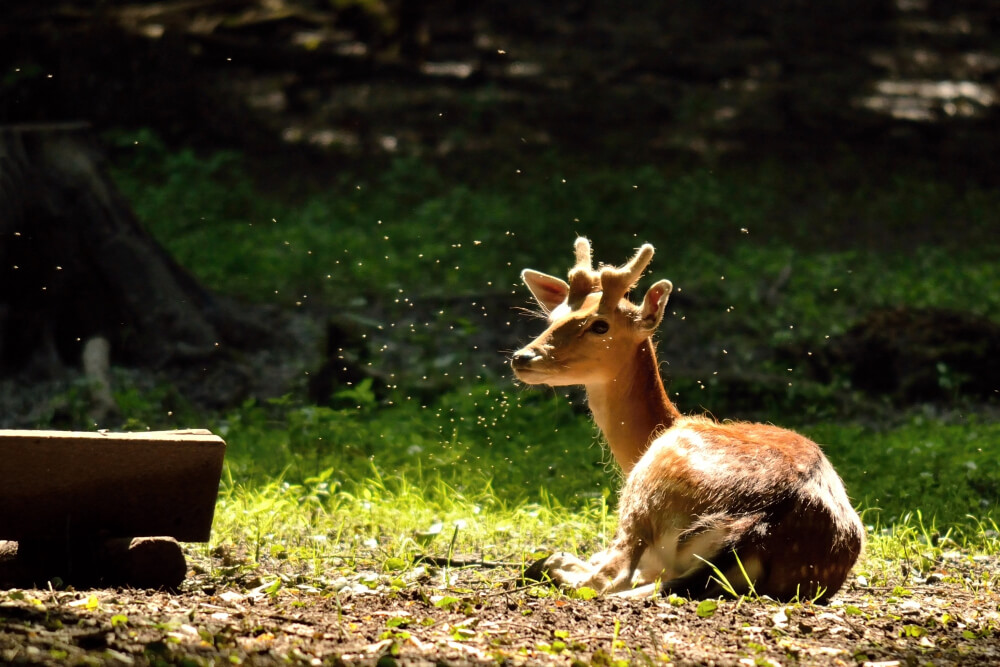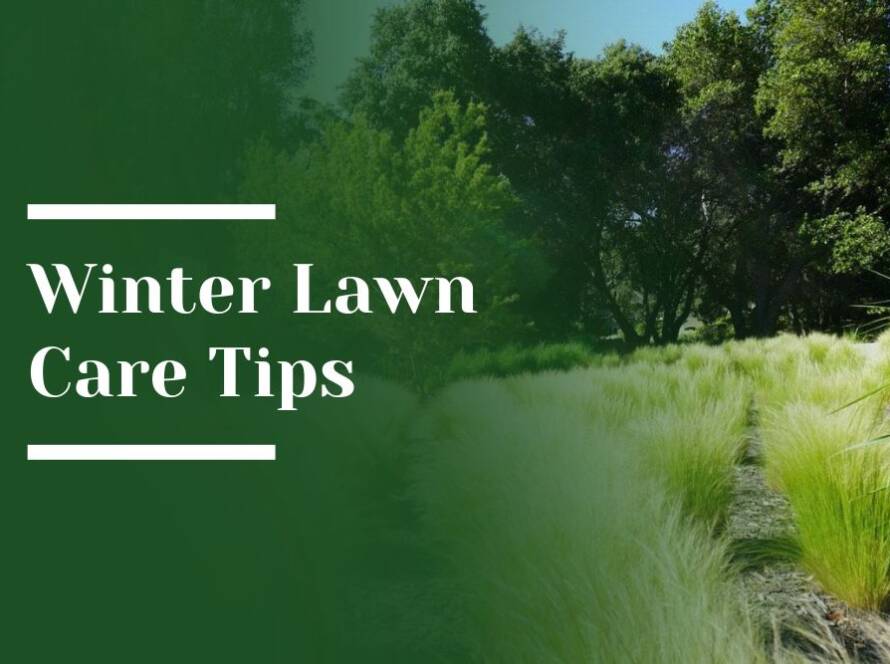Your garden is more than just a garden; it’s a masterpiece, a luxurious landscape that you’ve designed and curated. Every element has been carefully chosen to create a symphony of colors, textures, and scents. But as any gardener knows, even the most enchanting gardens can face unwelcome guests. For many gardeners, the most persistent of these visitors are deer.
Deer are elegant creatures, but their appetite for greenery can turn your garden into an all-you-can-eat buffet. When luxury landscape is your passion, it’s essential to find ways to protect it from these herbivorous diners. That’s where the concept of natural deer repellents comes into play.
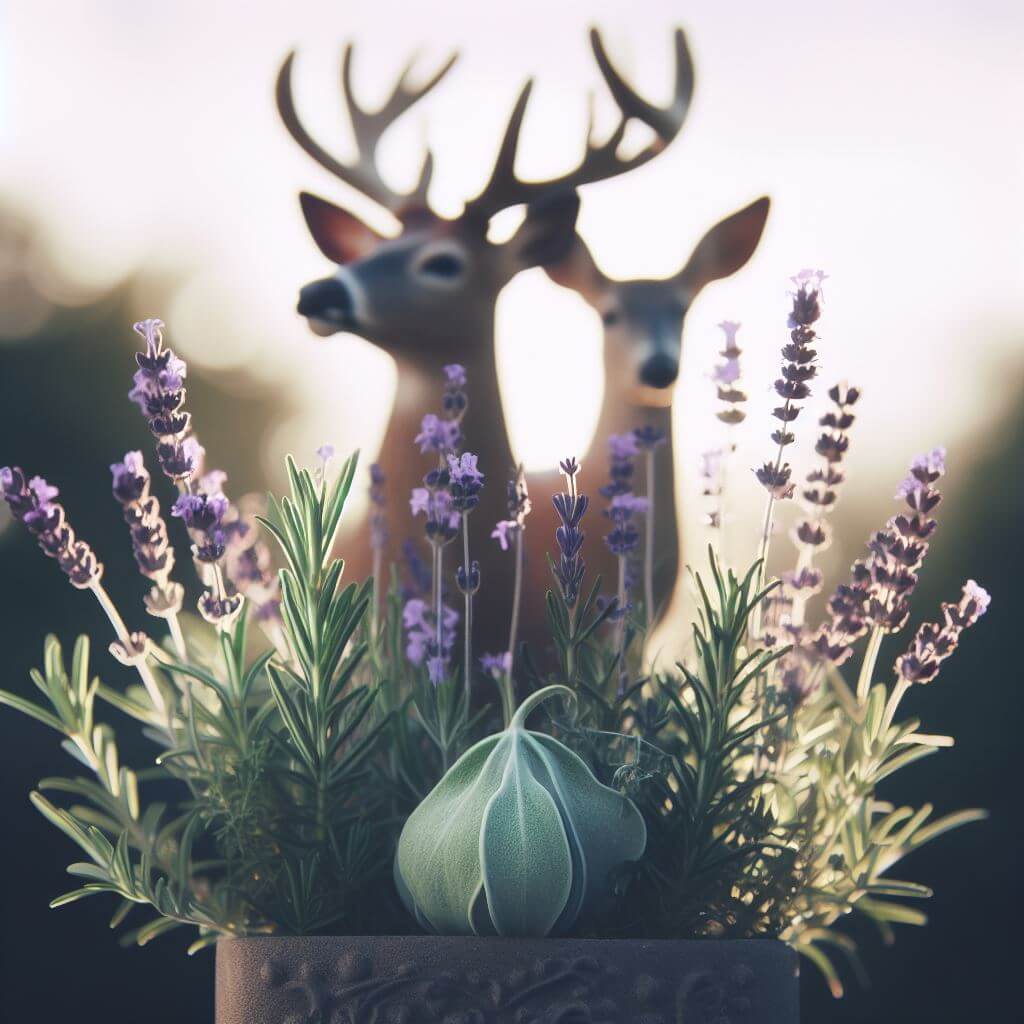
Thyme, Rosemary, and Lavender as Deer Repellents in Garden Design
Using Natural Defenses
When it comes to natural deer repellents, thyme, rosemary, and lavender often take the stage. These herbs are celebrated for their robust scents, which many believe can deter deer from grazing on your carefully chosen plants. While scientific evidence on the effectiveness of these herbs as standalone deer repellents is limited, they can still be valuable components of your overall defense strategy. Let’s take a closer look at each of these herbs and how they contribute to the protection of your luxury landscape.
Thyme: A Potent Protector
Thyme, known for its strong and earthy fragrance, is the first herb in our trio of deer-repelling plants. Gardeners have noticed that thyme’s powerful aroma can make it an unappealing dining option for deer. It’s worth noting that while thyme may deter deer, it might not work as a standalone solution. Deer populations can react differently to this scent, so combining thyme with other repellent methods is often the best approach.
Rosemary: Nature’s Armor
Rosemary, with its robust, woody scent complemented by piney undertones, is the second herb in our lineup. Its fragrance is thought to make it unattractive to deer. Like thyme, rosemary isn’t a guaranteed deer repellent on its own. Gardeners have had mixed results, which is why it’s advisable to combine rosemary with other repellent techniques to enhance its effectiveness.
Lavender: Sweet Scent, Strong Barrier
Lavender brings a sweet, floral, and herbaceous aroma to the ensemble. Its fragrance is believed to discourage deer from invading your garden. However, just like thyme and rosemary, lavender alone may not be foolproof. For better results, pair it with additional deer-repelling methods.
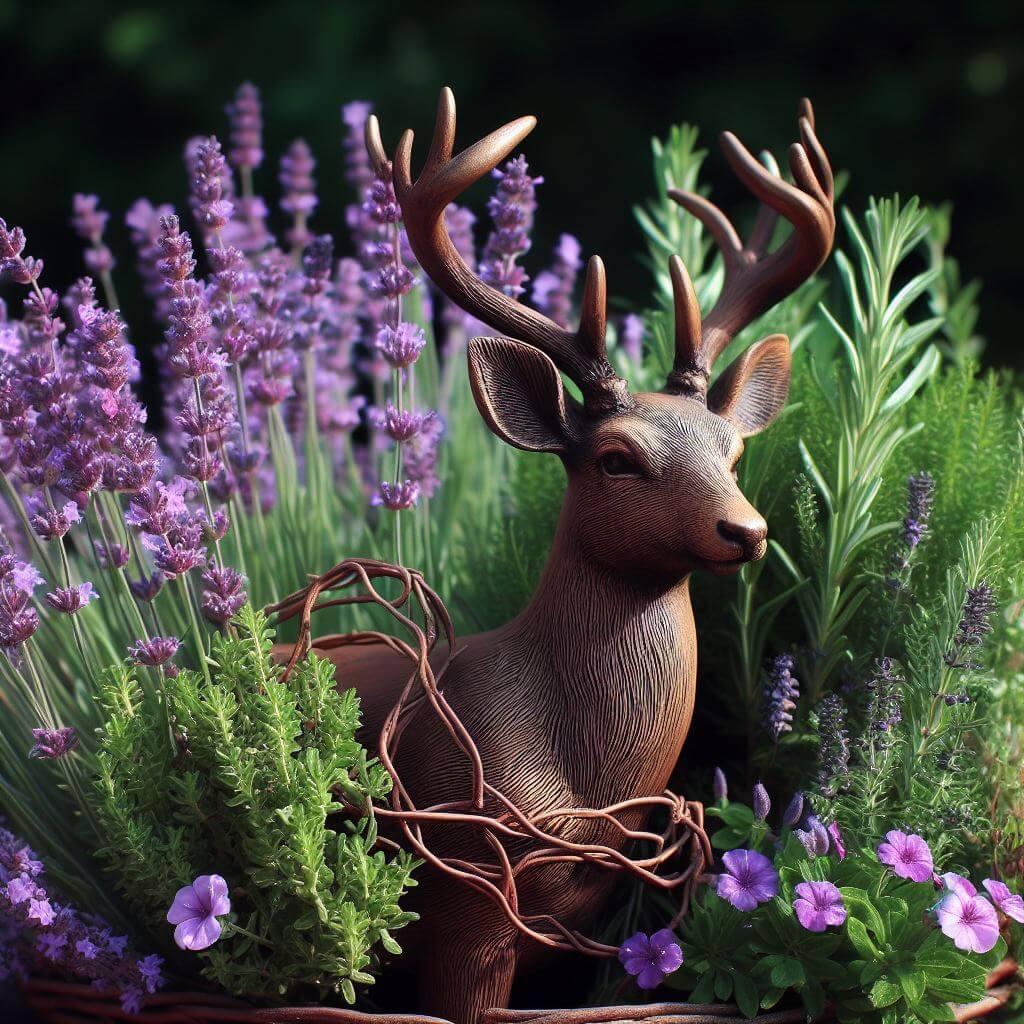
Optimizing the Use of These Herbs as Deer Repellents in luxury landscaping
Maximizing Your Defense
To enhance the potential effectiveness of thyme, rosemary, and lavender as deer repellents, consider the following strategies:
Rotation: Keeping Deer on Their Toes
Deer can become accustomed to scents over time, reducing the effectiveness of your repellent herbs. To maximize their effectiveness, consider rotating the types of herbs you use or combine them with other deer repellent methods. For instance, you can plant a variety of deer-repelling herbs or alternate between different types each season.
Companion Planting: The Power of Partnerships
Pairing thyme, rosemary, and lavender with other plants that deer naturally tend to avoid can create a more effective barrier. Marigolds and garlic, for instance, are known to have some deer-repelling properties. Interplanting these with your herbs can add an extra layer of protection to your luxury landscaping.
Frequent Pruning: Releasing the Defense
Regular pruning of your herbs releases their scents more effectively, making them more potent as repellents. When you notice deer activity in your garden, don’t hesitate to trim the herbs as needed to keep their scents at their most powerful.
Remember, No Method Is Foolproof
Deer: The Adaptable Diners
While these herbs and strategies can contribute to safeguarding your garden from deer damage, it’s essential to understand that no single method guarantees 100% effectiveness. Deer behavior and preferences can vary, even among individual animals in the same population. As such, it’s often best to combine multiple strategies and be adaptable in your approach to create a garden that’s as unappetizing as possible to these graceful herbivores. In this way, you can enjoy your garden’s beauty while minimizing the risk of deer-related plant damage.
Beyond the Herb Garden
While herbs like thyme, rosemary, and lavender are valuable players in your deer-repellent lineup, it’s essential to explore additional landscaping strategies that can protect your garden from unwanted visitors. Consider these techniques:
- Fencing: Installing tall, sturdy fences around your luxury landscape is a reliable way to keep deer at bay. This physical barrier creates a clear boundary that deer find challenging to breach.
- Deer-Resistant Plants: Incorporate more deer-resistant plants into your garden. While no plant is entirely deer-proof, certain species are less appealing to them.
- Motion-Activated Sprinklers: These devices startle deer with sudden bursts of water when they approach your garden. Over time, deer learn to avoid areas equipped with these sprinklers.
When you’ve poured your passion into creating a luxury landscape, protecting it from deer damage becomes a top priority. The strong scents of thyme, rosemary, and lavender can serve as valuable deer repellents. Yet, no method, is guaranteed to work 100% of the time. As we’ve explored, a combination of strategies, including rotating your defenses, companion planting, and seeking the guidance of a landscape architect, is often the best approach to create a luxurious, deer-free landscape. By harnessing the power of nature and expert advice, you can ensure your garden remains a masterpiece of luxury for years to come.
